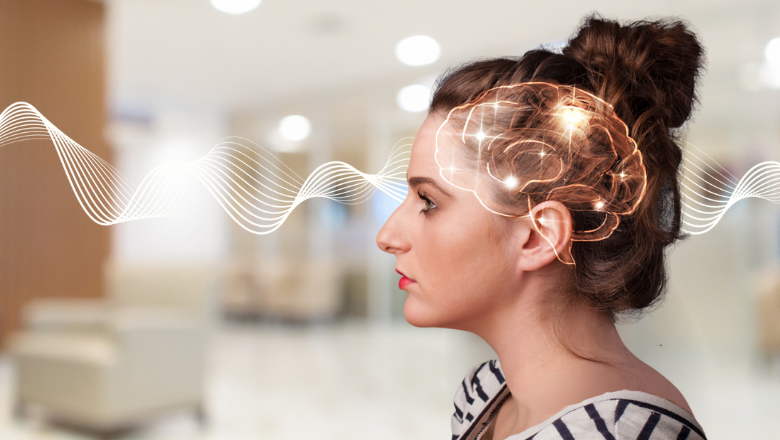Our research has shown that when theta waves in frontal regions of the brain become unstable, people with ADHD have more difficulty maintaining consistent performance on everyday tasks. We are investigating whether using repetitive transcranial magnetic stimulation can modulate these wave patterns to improve cognitive performance - an approach that could provide new insights into treating aspects of ADHD that people find challenging.
Dr Gráinne McLoughlin, Reader in Cognitive Neuroscience at the IoPPN and Principal Investigator of the study
09 September 2025
Targeting brain waves to reduce cognitive challenges in ADHD
Researchers have received £1.3 million from the Medical Research Council to investigate whether targeting theta brain wave activity could reduce cognitive challenges faced by people with ADHD.

With this new funding, researchers at the Institute of Psychiatry, Psychology & Neuroscience (IoPPN) at King’s College London will test whether a repetitive form of transcranial magnetic stimulation (TMS) – a technology which can alter brain waves – can reduce thinking and attention difficulties associated with ADHD by targeting theta wave activity.
The findings will determine whether theta brain waves could be a target for future ADHD interventions, and may provide evidence for TMS as a new, drug-free intervention to support people with ADHD.
The study, led by Dr Gráinne McLoughlin at the IoPPN with co-investigators Professor Katya Rubia, Dr Luke Mason and Dr Máté Gyurkovics (now at University of East Anglia), will use the new Electroencephalography (EEG) Suite and Transcranial Magnetic Stimulation (TMS) facilities at the Pears Maudsley Centre for Children and Young People.
While stimulant medication is still the most effective short-term treatment for adults with ADHD, they have notable side effects, the longer-term effects are not yet known, and people with ADHD often prefer non-drug treatments. New brain stimulation methods like TMS have the potential to directly target the key differences in the brain function of people with ADHD that we have found over the past three decades and, as a result, improve cognitive abilities.
Professor Katya Rubia, Professor of Cognitive Neuroscience at the IoPPN and co-investigator on the study
Brain waves are rhythmic patterns of neural activity in the brain which are thought to play a crucial role in the communication between brain cells (neurons), cognitive processes and overall brain function.
There are different types of brain waves which occur at different frequencies. When these waves are dysregulated, it can lead to cognitive or behavioural difficulties. These challenges are often seen in ADHD – in particular, cognitive control which allows people to regulate their thoughts, emotions and behaviours to achieve everyday goals.
The new funding will allow the researchers to explore how a specific type of brain wave (known as theta waves, which have a frequency of 4-8 Hertz) might be involved in the challenges faced by people with ADHD, and whether this could represent a new target for intervention.
They will investigate whether repetitive TMS can improve cognitive consistency in young adults with ADHD (ages 18 to 25), compared to neurotypical young adults, through targeting theta wave activity.
The research will take place at the new Clinical Research Facility at the Pears Maudsley Centre, which is set to be the leading facility in the UK dedicated to the investigation and treatment of mental health in children and young people. The Clinical Research Facility will be a space where children of all ages, from babies up to young adults, can participate in research to identify the root of mental health and neurodevelopmental conditions, and use this research to implement and monitor groundbreaking interventions.
Dr McLoughlin’s project exemplifies how researchers at the Pears Maudsley Centre will use cutting edge, safe technologies within the Clinical Research Facility to develop innovative new treatments. By ‘fine-tuning’ key brain waves, this approach could tackle a root cause of some cognitive differences that can prove challenging for young people with ADHD.
Professor Philip Shaw, Director of the King’s Maudsley Partnership for Children and Young People
For more information, please contact Milly Remmington (School of Mental Health & Psychological Sciences Communications Manager).
In this story
Related departments
- Institute of Psychiatry, Psychology & Neuroscience
- School of Mental Health & Psychological Sciences
- School of Academic Psychiatry
- Social, Genetic & Developmental Psychiatry Centre
- Department of Child & Adolescent Psychiatry
- King's Maudsley Partnership for Children and Young People
- Pears Maudsley Centre for Children and Young People



